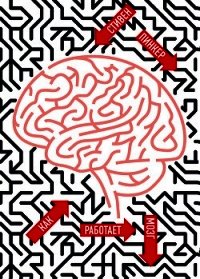Язык как инстинкт - Пинкер Стивен (читать книги онлайн полностью без регистрации .TXT) 📗
Dronkers N. F., Shapiro J., Redfern B. & Knight R. 1992. The role of Broca’s area in Broca’s aphasia // Journal of Clinical and Experimental Neuropsychology, 14. P. 52–53.
Dryer M. S. 1992. The Greenbergian word order correlations // Language, 68. P. 81–138.
Dyson F. 1979. Disturbing the universe. New York: Harper.
The Economist. 1992. Minds in the making: A survey of Artificial Intelligence. March 14, 1992. P. 1–24.
The Editors of The New Republic. 1992. Bushisms. New York: Workman.
Eimas P. D., Siqueland E. R., Jusczyk P., & Vigorito J. 1971. Speech perception in infants // Science, 171. P. 303–306.
Emonds J. 1986. Grammatically deviant prestige constructions // A festschrift for Sol Saporta. Seattle: Noit Amrofer.
Ervin-Tripp S. 1973. Some strategies for the first two years // T. E. Moore (Ed.), Cognitive development and the acquisition of language. New York: Academic Press.
Espy W. R. 1975. An almanac of words at play. New York: Clarkson Potter.
Espy W. R. 1989. The word’s gotten out. New York: Clarkson Potter.
Etcoff N. L. 1986. The neuropsychology of emotional expression // G. Goldstein & R. E. Tarter (Eds.), Advances in Clinical Neuropsychology, Vol. 3. New York: Plenum.
Fahey V., Kamitomo G. A. & Cornell E. H. 1978. Heritability in syntactic development: a critique of Munsinger and Douglass // Child Development, 49. P. 253–257.
Farah M. J. 1990. Visual agnosia. Cambridge, Mass.: MIT Press.
Fernald A. 1992. Human maternal vocalizations to infants as biologically relevant signals: An evolutionary perspective // Barkow, Cosmides, & Tooby, 1992.
Ferreira F. & Henderson J. M. 1990. The use of verb information in syntactic parsing: A comparison of evidence from eye movements and word-by-word self-paced reading // Journal of Experimental Psychology: Learning, Memory and Cognition, 16. P. 555–568.
Fischer S. D. 1978. Sign language and creoles // Siple 1978.
Flavell J. H., Miller P. H. & Miller S. A. 1993. Cognitive development (3rd ed.). Englewood Cliffs, N. J.: Prentice Hall.
Fodor J. A. 1975. The language of thought. New York: Crowell.
Fodor J. A. 1983. The modularity of mind. Cambridge, Mass.: MIT Press.
Fodor J. A. & commentators. 1985. Precis and multiple book review of «The Modularity of Mind» // Behavioral and Brain Sciences, 8. P. 1–42.
Fodor J. D. 1989. Empty categories in sentence processing // Language and Cognitive Processes, 4. P. 155–209.
Ford M., Bresnan J. & Kaplan R. M. 1982. A competence-based theory of syntactic closure // Bresnan 1982.
Frazier L. 1989. Against lexical generation of syntax // Marslen-Wilson, 1989.
Frazier L. & Fodor J. D. 1978. The sausage machine. A new two-stage parsing model // Cognition, 6. P. 291–328.
Freedman D. H. 1990. Common sense and the computer. Discover, August. P. 65–71.
Freeman D. 1983. Margaret Mead and Samoa: The making and unmaking of an anthropological myth. Cambridge, Mass.: Harvard University Press.
Friedin R. 1992. Foundations of generative syntax. Cambridge, Mass.: MIT Press.
Galaburda A. M. & Pandya D. N. 1982. Role of architectonics and connections in the study of primate brain evolution // E. Armstrong & D. Falk (Eds.), Primate brain evolution. New York: Plenum.
Gallen C. 1994. Neuromagnetic assessment of human cortical function and dysfunction: Magnetic source imaging // P. Tallal (Ed.), Neural and cognitive mechanisms underlying speech, language, and reading. Cambridge, Mass.: Harvard University Press.
Gallistel C. R. 1990. The organization of learning. Cambridge, Mass.: MIT Press.
Gallistel C. R. (Ed.) 1992. Animal cognition. Cambridge, Mass.: MIT Press.
Gardner B. T. & Gardner R. A. 1974. Comparing the early utterances of child and chimpanzee // A. Pick (Ed.), Minnesota symposium on child psychology, Vol. 8. Minneapolis: University of Minnesota Press.
Gardner H. 1974. The shattered mind. New York: Vintage.
Gardner H. 1985. The mind’s new science: A history of the cognitive revolution. New York: Basic Books.
Gardner R. A. & Gardner, B. T. 1969. Teaching sign language to a chimpanzee // Science, 165. P. 664–672.
Garfield J. (Ed.) 1987. Modularity in knowledge representation and naturallanguage understanding. Cambridge, Mass.: MIT Press.
Garnsey S. M., Tanenhaus M. D. & Chapman R. M. 1989. Evoked potentials and the study of sentence comprehension // Journal of Psycholinguistic Research, 18. P. 51–60.
Garrett M. 1990. Sentence processing // Osherson & Lasnik 1990.
Gazzaniga M. S. 1978. The integrated mind. New York: Plenum.
Gazzaniga M. S. 1983. Right hemisphere language following brain bisection: A 20-year perspective // American Psychologist, 38. P. 528–549.
Gazzaniga M. S. 1989. Organization of the human brain // Science, 245. P. 947–952.
Gazzaniga M. S. 1992. Nature’s mind. New York: Basic Books.
Geertz C. 1984. Anti anti-relativism // American Anthropologist, 86. P. 263–278.
Geisel T. S. 1955. On beyond zebra, by Dr. Seuss. New York: Random House.
Gelman S. A. & Markman E. 1987. Young children’s inductions from natural kinds: The role of categories and appearances // Child Development, 58. P. 1532–1540.
Gentner D. & Jeziorski M. 1989. Historical shifts in the use of analogy in science // B. Gholson W. R. Shadish Jr., R. A. Beimeyer & A. Houts (Eds.), The psychology of science: Contributions to metascience. New York: Cambridge University Press.
Geschwind N. 1979. Specializations of the human brain // Specific American, September.
Geschwind N. & Galaburda A. 1987. Cerebral lateralization: Biological mechanisms, associations, and pathology. Cambridge, Mass.: MIT Press.
Gibbons A. 1992. Neanderthal language debate: Tongues wag anew // Science, 256. P. 33–34.
Gibbons A. 1993. Mitochondrial Eve refuses to die // Science, 259. P. 1249–1250.
Gibson E. 1998. Linguistic complexity: Locality of syntactic dependencies // Cognition 68. P. 1–76.
Gleitman L. R. 1981. Maturational determinants of language growth // Cognition, 10. P. 103–114.
Gleitman L. R. 1990. The structural sources of verb meaning // Language Acquisition, 1. P. 3–55.
Goldsman M. 1992. Quayle quotes. Various computer networks.
Goodglass H. 1973. Studies on the grammar of aphasics // H. Goodglass & S. E. Blumstein (Eds.), Psycholinguistics and aphasia. Baltimore: Johns Hopkins University Press.
Goodman N. 1972. Seven strictures on similarity // Problems and projects. Indianapolis: Bobbs-Merrill.
Gopnik M. 1990a. Dysphasia in an extended family // Nature. P. 344, 715.
Gopnik M. 1990b. Feature blindness: A case study // Language Acquisition. P. 139–164.
Gopnik M. 1993. The absence of obligatory tense in genetic language impairment. Unpublished manuscript, Department of Linguistics, McGill University.
Gopnik M. & Crago M. 1991. Familial aggregation of a developmental language disorder // Cognition, 39. P. 1–50.
Gordon P. 1986. Level-ordering in lexical development // Cognition, 21. P. 73–93.
Gould J. L. & Marler P. 1987. Learning by instinct // Scientific American, January.
Gould S. J. 1977. Why we should not name human races: A biological view // S. J. Gould. Ever since Darwin. New York: Norton.
Gould S. J. 1981. The mismeasure of man. New York: Norton.
Gould S. J. 1985. The flamingo’s smile: Reflections in natural history. New York: Norton.




